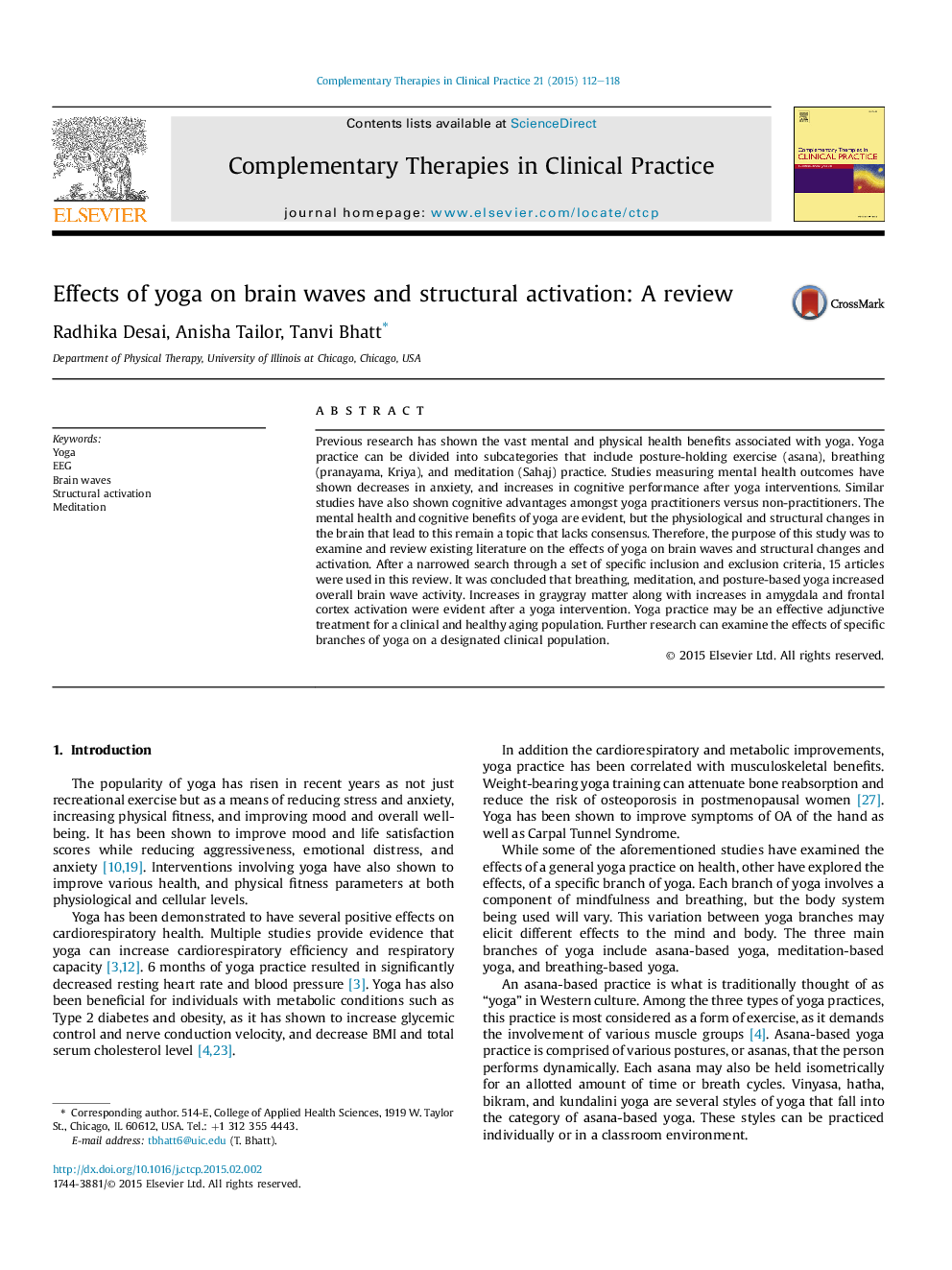| Article ID | Journal | Published Year | Pages | File Type |
|---|---|---|---|---|
| 2628742 | Complementary Therapies in Clinical Practice | 2015 | 7 Pages |
•We summarize the findings of existing research that examined the effects of yoga on brain waves and structural activation.•It was found that yoga has positive effects on brainwave activity, which has been associated with improvements in cognition.•Yoga interventions also seem to have neuroplastic effects on various structures in the brain.
Previous research has shown the vast mental and physical health benefits associated with yoga. Yoga practice can be divided into subcategories that include posture-holding exercise (asana), breathing (pranayama, Kriya), and meditation (Sahaj) practice. Studies measuring mental health outcomes have shown decreases in anxiety, and increases in cognitive performance after yoga interventions. Similar studies have also shown cognitive advantages amongst yoga practitioners versus non-practitioners. The mental health and cognitive benefits of yoga are evident, but the physiological and structural changes in the brain that lead to this remain a topic that lacks consensus. Therefore, the purpose of this study was to examine and review existing literature on the effects of yoga on brain waves and structural changes and activation. After a narrowed search through a set of specific inclusion and exclusion criteria, 15 articles were used in this review. It was concluded that breathing, meditation, and posture-based yoga increased overall brain wave activity. Increases in graygray matter along with increases in amygdala and frontal cortex activation were evident after a yoga intervention. Yoga practice may be an effective adjunctive treatment for a clinical and healthy aging population. Further research can examine the effects of specific branches of yoga on a designated clinical population.
